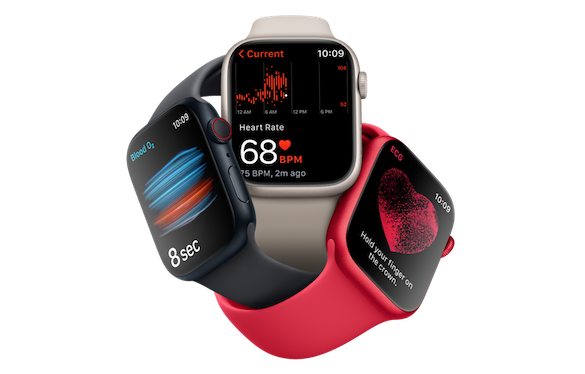-
Americas
-
Asia & Oceania
-
A-I
J-Z

EMEA Thought Leadership
Developing IQVIA’s positions on key trends in the pharma and life sciences industries, with a focus on EMEA.
Learn more -
Middle East & Africa

EMEA Thought Leadership
Developing IQVIA’s positions on key trends in the pharma and life sciences industries, with a focus on EMEA.
Learn more
Regions
-
Americas
-
Asia & Oceania
-
Europe
-
Middle East & Africa
-
Americas
-
Asia & Oceania
-
Europe
Europe
- Adriatic
- Belgium
- Bulgaria
- Czech Republic
- Deutschland
- España
- France
- Greece
- Hungary
- Ireland
- Israel
- Italia

EMEA Thought Leadership
Developing IQVIA’s positions on key trends in the pharma and life sciences industries, with a focus on EMEA.
Learn more -
Middle East & Africa

EMEA Thought Leadership
Developing IQVIA’s positions on key trends in the pharma and life sciences industries, with a focus on EMEA.
Learn more
SOLUTIONS
-
Research & Development
-
Real World Evidence
-
Commercialization
-
Safety & Regulatory Compliance
-
Technologies
LIFE SCIENCE SEGMENTS
HEALTHCARE SEGMENTS
- Information Partner Services
- Financial Institutions
- Public Health and Government
- Patient Associations
- Payers
- Providers
THERAPEUTIC AREAS
- Cardiovascular
- Cell and Gene Therapy
- Central Nervous System
- GI & Hepatology
- Infectious Diseases and Vaccines
- Oncology
- Pediatrics
- Rare Diseases
- View All

Impacting People's Lives
"We strive to help improve outcomes and create a healthier, more sustainable world for people everywhere.
LEARN MORE
Harness the power to transform clinical development
Reimagine clinical development by intelligently connecting data, technology, and analytics to optimize your trials. The result? Faster decision making and reduced risk so you can deliver life-changing therapies faster.
Research & Development OverviewResearch & Development Quick Links

Real World Evidence. Real Confidence. Real Results.
Generate and disseminate evidence that answers crucial clinical, regulatory and commercial questions, enabling you to drive smarter decisions and meet your stakeholder needs with confidence.
REAL WORLD EVIDENCE OVERVIEWReal World Evidence Quick Links

See markets more clearly. Opportunities more often.
Elevate commercial models with precision and speed using AI-driven analytics and technology that illuminate hidden insights in data.
COMMERCIALIZATION OVERVIEWCommercialization Quick Links

Service driven. Tech-enabled. Integrated compliance.
Orchestrate your success across the complete compliance lifecycle with best-in-class services and solutions for safety, regulatory, quality and medical information.
COMPLIANCE OVERVIEWSafety & Regulatory Compliance Quick Links

Intelligence that transforms life sciences end-to-end.
When your destination is a healthier world, making intelligent connections between data, technology, and services is your roadmap.
TECHNOLOGIES OVERVIEWTechnology Quick Links
CLINICAL PRODUCTS
COMMERCIAL PRODUCTS
COMPLIANCE, SAFETY, REG PRODUCTS
BLOGS, WHITE PAPERS & CASE STUDIES
Explore our library of insights, thought leadership, and the latest topics & trends in healthcare.
DISCOVER INSIGHTSTHE IQVIA INSTITUTE
An in-depth exploration of the global healthcare ecosystem with timely research, insightful analysis, and scientific expertise.
SEE LATEST REPORTSFEATURED INNOVATIONS
-
IQVIA Connected Intelligence™
-
IQVIA Healthcare-grade AI™
-
Human Data Science Cloud
-
IQVIA Innovation Hub
-
Decentralized Trials
-
Patient Experience powered by Apple
WHO WE ARE
- Our Story
- Our Impact
- Commitment to Public Health
- Code of Conduct
- Environmental Social Governance
- Privacy
- Executive Team
NEWS & RESOURCES

Unlock your potential to drive healthcare forward
By making intelligent connections between your needs, our capabilities, and the healthcare ecosystem, we can help you be more agile, accelerate results, and improve patient outcomes.
LEARN MORE
IQVIA AI is Healthcare-grade AI
Building on a rich history of developing AI for healthcare, IQVIA AI connects the right data, technology, and expertise to address the unique needs of healthcare. It's what we call Healthcare-grade AI.
LEARN MORE
Your healthcare data deserves more than just a cloud.
The IQVIA Human Data Science Cloud is our unique capability designed to enable healthcare-grade analytics, tools, and data management solutions to deliver fit-for-purpose global data at scale.
LEARN MORE
Innovations make an impact when bold ideas meet powerful partnerships
The IQVIA Innovation Hub connects start-ups with the extensive IQVIA network of assets, resources, clients, and partners. Together, we can help lead the future of healthcare with the extensive IQVIA network of assets, resources, clients, and partners.
LEARN MORE
Proven, faster DCT solutions
IQVIA Decentralized Trials deliver purpose-built clinical services and technologies that engage the right patients wherever they are. Our hybrid and fully virtual solutions have been used more than any others.
LEARN MORE
IQVIA Patient Experience Solutions powered by Apple
Empowering patients to personalize their healthcare and connecting them to caregivers has the potential to change the care delivery paradigm. IQVIA and Apple are collaborating to bring this exciting future of personalized care directly to devices patients already have and use.
LEARN MOREWORKING AT IQVIA
Our mission is to accelerate innovation for a healthier world. Together, we can solve customer challenges and improve patient lives.
LEARN MORELIFE AT IQVIA
Careers, culture and everything in between. Find out what’s going on right here, right now.
LEARN MORE
WE’RE HIRING
"Improving human health requires brave thinkers who are willing to explore new ideas and build on successes. Unleash your potential with us.
SEARCH JOBS- Blogs
- Failed Alzheimer's trials must not be forgotten
Last fall's Clinical Trials on Alzheimer ’s Disease (CTAD) event in Barcelona, featured no groundbreaking revelations or long awaited trial results. Instead, participants focused their presentations and discussions on promising trials currently underway, lessons learned from previous efforts, and how failures from the past will drive our success in the future.
Many conversations centered on Aducanumab, Biogen’s AD drug currently tested in an ongoing large-scale phase 3 program. In March, Biogen announced that data from the Phase 1B trial showed an acceptable safety profile and positive results on neuroimaging and clinical measurements in patients with prodromal Alzheimer’s disease (AD), which is a promising development. Similarly, Eli Lilly released results from its Solanezumab trials in July that suggest the treatment effect of the drug was preserved within a pre-specified amount in patients with mild Alzheimer's disease who received solanezumab earlier in the disease. While many participants were disappointed that no further trial results were released at CTAD, there are high hopes for these drugs. If the trials continue to show positive results in patients with prodromal and mild AD, it could be a tremendous breakthrough for the industry and hope for the patients
Lessons from the past
But these trial results represented only one aspect of the event. Over three days, participants heard presentations and viewed scientific posters on broad range of research currently underway in the AD space. In one of the more thought provoking sessions was led by Eric Siemers, M.D. a Distinguished Medical Fellow of the Alzheimer’s Disease Global Development Team at Eli Lilly, who talked about the overall drug development process for AD from the point of view of the industry. Dr. Siemers touched on the many negative results in AD trials beginning as far back as 2002, and how those results shouldn’t be viewed as mere failures, but rather as opportunities that helped shape today’s research.
He argued that much of the work we are accomplishing today is built on the backs of those early trials. The results helped us better understand how to approach AD research, including the need to address the presence of both tau protein and beta-amyloid in patients’ brains, and to focus more effort on identifying diagnostics tools and preventive treatments. That knowledge lead to better imaging techniques, and the recent discoveries of new biomarkers that indicate AD far earlier in the disease’s progression. These discoveries are critical to AD trials because they enable researchers to identify patients before they are symptomatic, which allows for faster and more specific recruiting for trials. These discoveries have also reduced the probability of safety concerns, and helped researchers design targeted protocols based on the patients most likely to respond to a drug.
Registries speed research
Another important outcome of these trials is the deployment of multiple AD patient registries around the world to support trial recruiting, and to give researchers a forum to gather real world data. Some registries highlighted at CTAD include Biogen’s AHEAD registry, which plans to recruit 14,000 participants to explore changes in memory and thinking among people 50 to 85 years of age; The Alzheimer’s Prevention Registry, led by Banner Alzheimer’s Institute, to link patients with researchers working on Alzheimer’s studies; and the Brain Health registry led by researchers at UC San Francisco, in which participants complete online neuropsychological tests to help scientists study brains as they age, and to identify a pool of pre-qualified clinical trial participants for future studies. All of these registries will help accelerate AD trial recruiting, which is one of the biggest challenges with this research, and help hone the inclusion/exclusion criteria for trials based on the data these registries collect.
Several presenters also discussed the potential impact of lifestyle changes in slowing AD progression, including a session lead by Laura D Baker, PhD, from the Wake Forest School of Medicine, who discussed research showing aerobic exercise could reduce phosphorylated tau protein (a biomarker of neurodegeneration) in cerebrospinal fluid in older adults with mild cognitive impairment.
Never forget
While AD research has been an often frustrating journey, it is important to acknowledge how far we’ve come and to remember that it could not have been achieved without those early failures. We still have many lessons to learn before we defeat this devastating disease, but we are much further along now thanks to those lessons learned.











